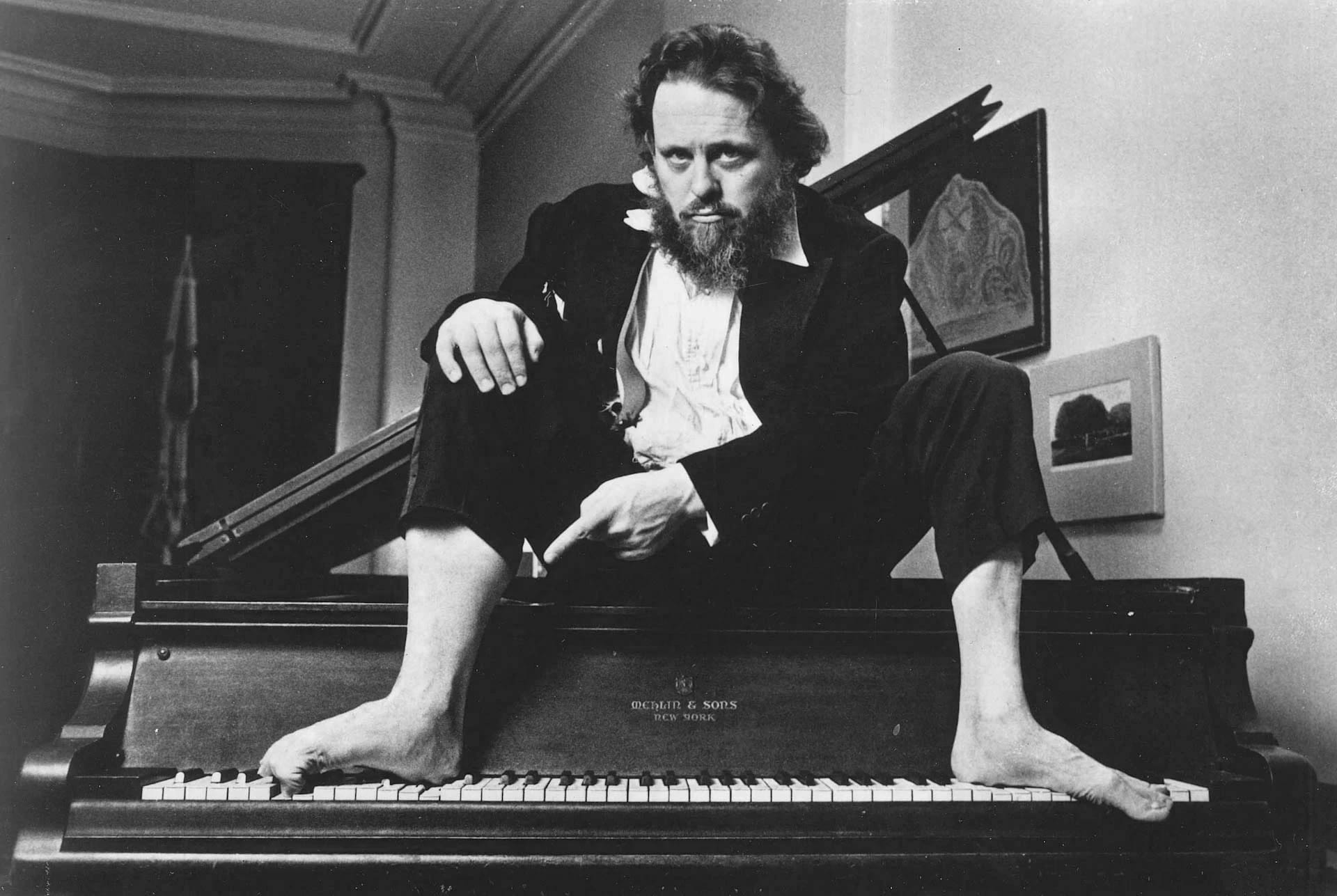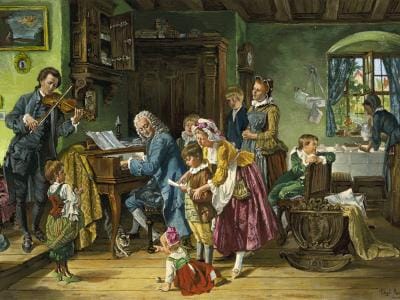
Johann Sebastian Bach
A workaholic, he was also the ultimate multitasker – composing intricate fugues with one hand while probably disciplining one of his 10 kids with the other. Stubborn and deeply devoted to both his craft and church, Bach was basically the human embodiment of "do it right or don’t do it at all."
#quotes
I play the notes as they are written, but it is God who makes the music.
S.D.G.*
*soli Deo gloria ("glory to God alone")
#whatif

...Bach were around today?
He’d have been the guy who writes a symphony while getting his kids ready for a morning ride to school.✏️
#quotes
"Don't cry for me, for I go where music was born."
215 years after J.S.Bach’s death it appeared that there was another his child, "the youngest and oddest of Johann Sebastian’s 20-odd children." He lived to the adulthood and similarly to his siblings chose a career of composing but for some reason, was forgotten or lost in the fame of his father and luckier brothers. By 1987, more than 20 years after the first presentation, the professor behind the discovery had found more than 75 works by P.D.Q.Bach and was pretty sure there had to be more. The most interesting works included A Little Nightmare Music, The Civilian Barber, The Seasonings, The Abduction of Figaro, P. D. Q. Bach in Houston: We Have a Problem!.
It all was a legend. And it was a parody.
Peter Schickele, an American composer made up the whole story about P.D.Q.Bach, including his date of birth – April 1, musical style details (of course, based on the works of musicians from the Bach family and other well-known composers), and compositional periods.
He came up with the idea when a student and performed a few pieces by P.D.Q.Bach at a classical music festival. Years after that, it became clear that audience was way more interested in these laugh-provoking works of a fictional character than in Schieckele’s serious performances. As a result, he recorded 17 albums of the "forgotten heritage" and took four consecutive Grammy Awards for Best Comedy Album.

J.S.Bach was already a well-known musician in his 50s who had just had his 18th child born, when his inner voice became too insisting on him doing something to preserve the family history. From the genealogical notes the composer made, it goes that he studied the family tree up to his great-great-grandpa (four generations back). It’s from that work and a few extra sources we know that
☞ the earliest ancestor J.S.Bach reached in his exploration was a German baker who lived in what now is Slovakia but then was the Kingdom of Hungary.
☞ his father Johann Ambrosius Bach had a twin brother, and Bach’s third and fourth children were also twin brother and sister, though both died as newborns.
☞ when Johannn Sebstian was 10 years old, his eldest brother who was 14 years older took the boy for further upbringing as they had lost both parents in less than a year.
☞ both J.S.Bach’s wives were professional singers, while Maria Barbara (the first wife) was also a distant relative of Johann Sebastian.
☞ J.S.Bach was a composer in the third generation, all his uncles and two of his brothers became musicians, and he had at least five children who followed the same career (very little is known about some of Bach’s children, and while composing was not viewed as a job for girls, they could become singers or assistants to professional male musicians).
☞ J.S.Bach had 20 children and lived through half of them passing away as babies or infants.
☞ four sons and a grandson of J.S.Bach who became recognised composers were also known by the cities of their residence or first performances – "Dresden Bach", "Hamburg Bach" or "Berlin Bach", "Bückeburg Bach", "Milan Bach" or "London Bach", "Minden Bach".
☞ J.S.Bach was born in the second half of the 17th century, while the youngest daughter was his only child who witnessed the beginning of the 19th century and even got acquainted with Ludwig van Beethoven.

Surprisingly, there is no clear evidence of any direct descendants of J.S.Bach living nowadays (there might be no, or might be some, but all claims are now speculations only), while there are certainly great...great-grandsons and -granddaughters of the Bach family who are our contemporaries and who do continue the musical tradition of the generations!